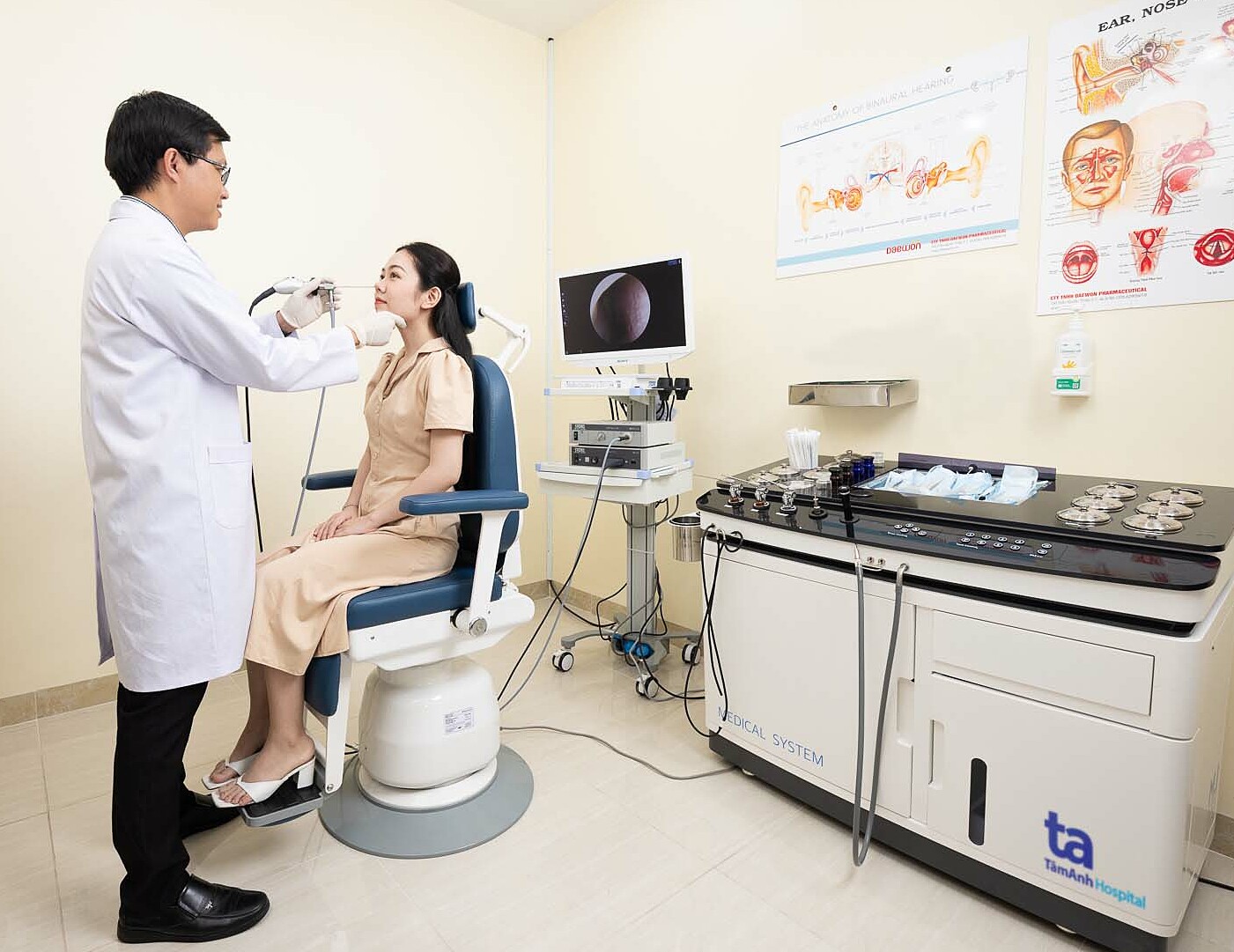Answer:
Sinuses are air-filled cavities within the facial bones, including the maxillary, ethmoid, frontal, and sphenoid sinuses. Sinusitis occurs when the mucous membranes lining these cavities become inflamed and swollen, producing excess mucus due to viruses, bacteria, or fungi. This leads to blockage of the sinus openings. Typical symptoms include nasal congestion, runny nose, pain in the face and around the eye sockets, headaches, fever, reduced sense of smell, and bad breath.
Acute sinusitis, often caused by upper respiratory tract infections, usually resolves within 1-4 weeks. Its symptoms, such as headaches, runny nose, nasal congestion, and fever, resemble those of a common cold. Chronic sinusitis, however, persists for over 12 weeks and is often associated with nasal polyps, a deviated septum, fungal sinusitis, or allergies, in addition to upper respiratory tract infections. Several factors can irritate the nasal passages and sinuses, increasing the risk of sinusitis flare-ups. These include air pollution, chemical exposure, overuse of nasal sprays, and smoking.
 |
Doctor Phat performs a nasal endoscopy on a patient. Photo illustration: Tam Anh General Clinic, District 7 |
In individuals with chronic sinusitis, the sinus membranes are often swollen, produce excess mucus, lose elasticity, and become more sensitive, hindering their self-cleaning ability. The cold, dry air from air conditioners further dries out these membranes, causing them to overreact, leading to constriction, swelling, increased mucus production, and blockage of the sinus openings. This trapped mucus creates a breeding ground for bacteria and fungi, potentially reactivating previous infections.
Cold air can also constrict the blood vessels in the sinus membranes, reducing blood flow. Prolonged exposure to air conditioning can exacerbate sinusitis symptoms in susceptible individuals, causing pain in the forehead and face, or nasal congestion. Furthermore, if air conditioners aren't cleaned regularly, they can accumulate dust mites, bacteria, viruses, and mold, which can irritate the already sensitive nasal membranes.
To minimize sinusitis flare-ups when regularly using air conditioning, avoid sitting directly under the cold airflow. Set the temperature to a moderate level (25-27 degrees Celsius). Using a humidifier or placing a small bowl of water on your desk can also help maintain humidity. Rinsing your nose with saline solution 2-3 times a day, especially after returning from work, helps remove dust and irritants from the nasal passages. Maintaining a healthy lifestyle, including a nutritious diet, adequate hydration, sufficient sleep, regular exercise, and stress management, can also strengthen your immune system.
Untreated and uncontrolled sinusitis can lead to complications affecting the eye sockets and skull base. If symptoms persist or worsen rapidly, including severe headaches, foul-smelling discharge, loss of smell, or swelling around the eyes, consult an ENT specialist for an endoscopy and prompt treatment to prevent complications.
MSc. Dr. Truong Tan Phat
Head of ENT Unit
Tam Anh General Clinic, District 7
| Readers can submit questions about ear, nose, and throat conditions here for doctors to answer. |












